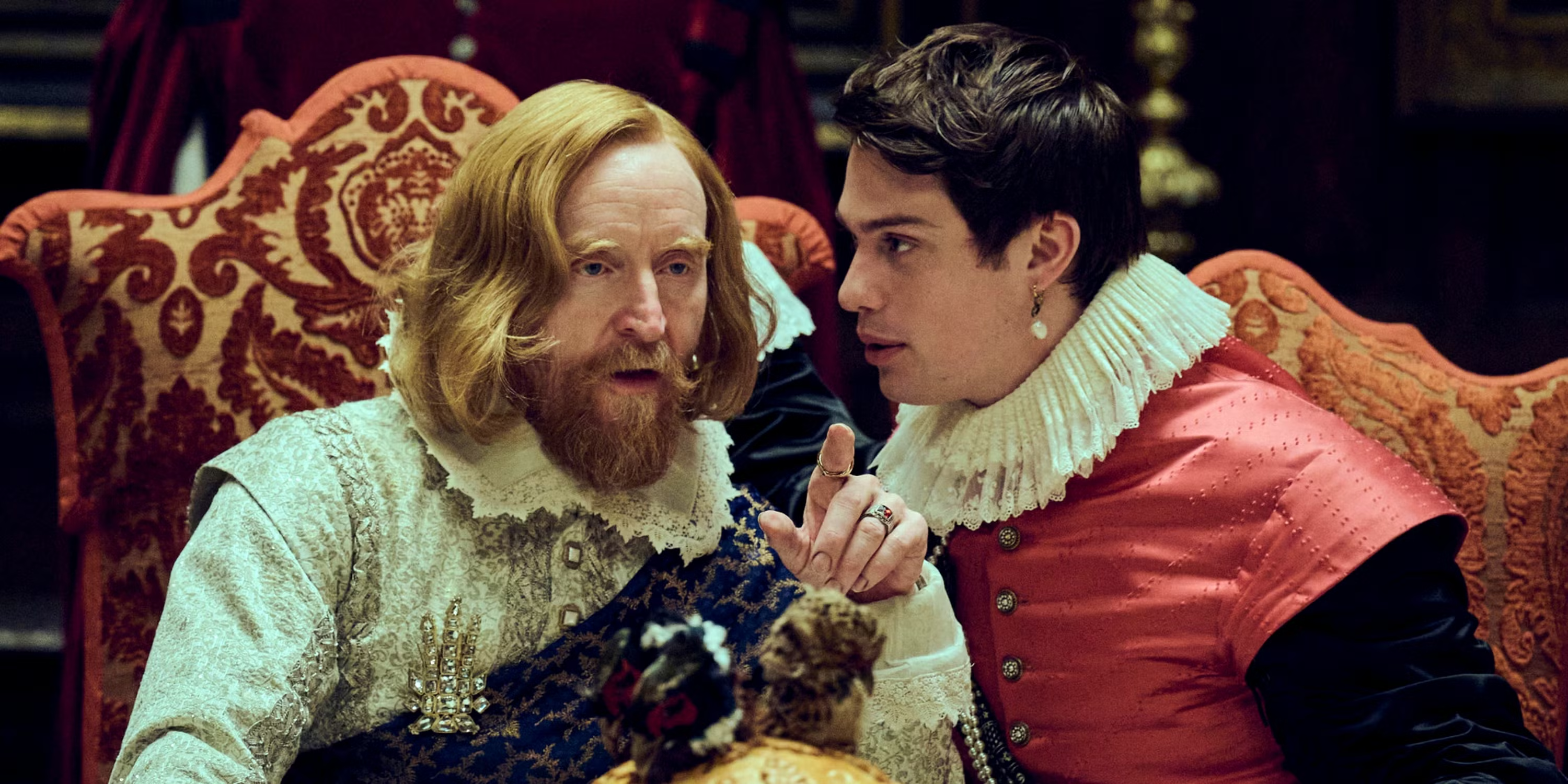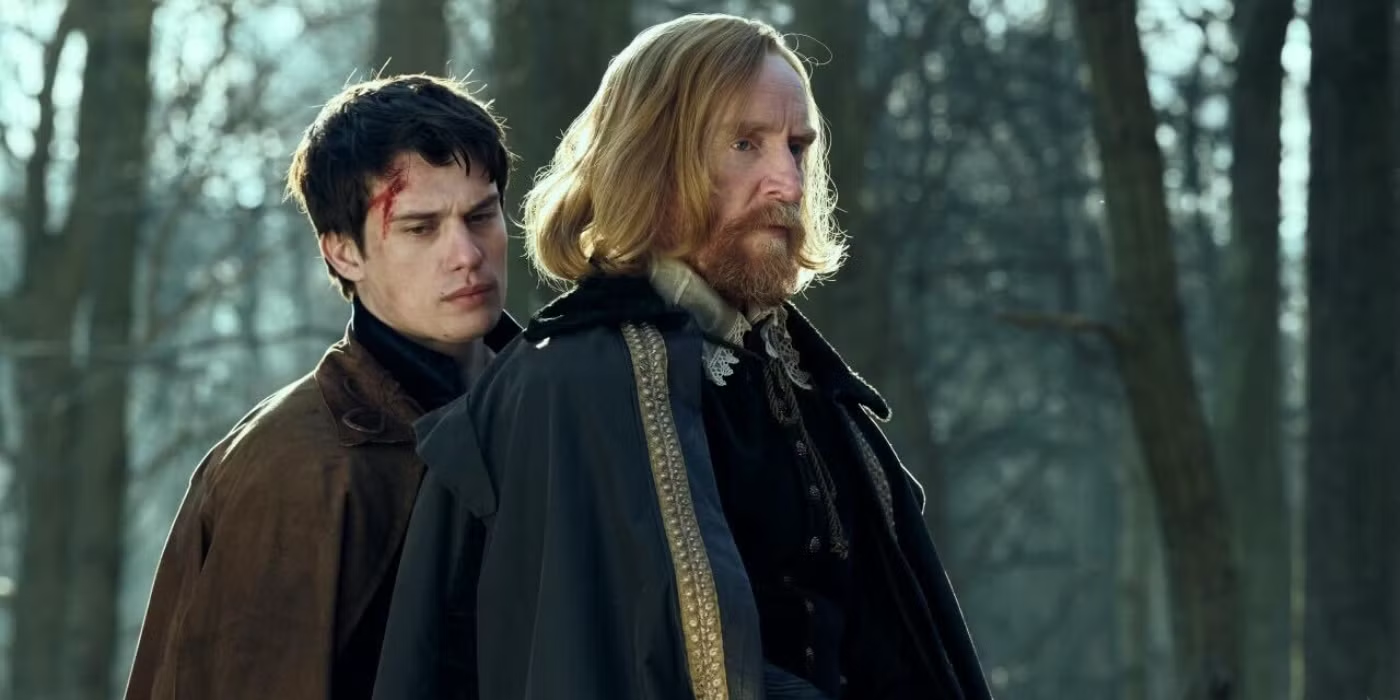
1923 Was an Overlooked Masterpiece! Outlander Star Tony Curran Blasts Emmy Snubs
- by Buny
- Posted on August 7, 2025
In the glittering world of Hollywood accolades, where golden statues often determine what’s worthy and what’s forgotten, 1923 has emerged as the ultimate underdog—a series that deserved the world but got barely a whisper in return. That silence? Outlander star Tony Curran just shattered it.
Curran didn’t hold back when he called out the Emmy Awards for ignoring 1923, and his passionate defense of Taylor Sheridan’s series didn’t just light up headlines—it reignited a fan-fueled firestorm. He didn’t just compliment the show in passing; he took a bold, unapologetic stance, calling the Emmy snub a blatant oversight of one of the most ambitious and emotionally raw dramas of the year. And honestly? He’s right.

Tony Curran isn’t some minor voice in the industry—he’s a seasoned actor with a reputation built on both talent and candor. When someone of his caliber steps forward to slam the Emmy committee for overlooking 1923, it’s not just a fan reaction—it becomes a major cultural moment. His words echo what millions have been saying online: 1923 wasn’t just another chapter in the Yellowstone universe. It was a cinematic triumph with sprawling narratives, deeply human characters, and unforgettable performances. Yet, somehow, it got nothing.
Curran’s statements weren’t just about awards. They challenged the very system that often rewards safe, politically palatable storytelling while brushing aside the gritty, the real, the daring. That’s what 1923 was—an unfiltered, emotionally raw frontier epic that didn’t flinch away from historical truths or uncomfortable realities. In calling out the Emmys, Curran wasn’t just defending a show. He was calling for a reevaluation of what the industry considers “award-worthy.”
Let’s break it down: why 1923 was truly robbed.
Taylor Sheridan didn’t craft 1923 as just another Western. He built an epic that could stand toe-to-toe with major Hollywood films. Each episode felt like a feature-length saga, weaving together Montana’s brutal frontier life with the harsh colonial landscape of Africa. The production quality was staggering—majestic landscapes, bone-chilling battle scenes, emotionally charged character arcs. It wasn’t television. It was art.
And then there was the cast. Harrison Ford and Helen Mirren didn’t just show up to lend their star power. They embodied their characters—Jacob and Cara Dutton—with such emotional depth and gravitas that their performances redefined what late-career brilliance could look like on television. Mirren’s portrayal of Cara was both fierce and maternal, equal parts warmth and steely resolve. Ford’s Jacob was weary, weathered, and haunted—a man torn between protecting his legacy and surviving the storm around him. It was masterclass after masterclass, yet Emmy voters passed them over entirely.
And that wasn’t all. The supporting cast delivered just as fiercely. Brandon Sklenar’s tortured turn as Spencer Dutton, Julia Schlaepfer’s vulnerable yet defiant Alexandra, and Aminah Nieves’ haunting portrayal of Teonna Rainwater—each performance was layered, nuanced, and unforgettable. The acting ensemble wasn’t just good. It was one of the best of the year.
So why was 1923 left out in the cold?

The answer might be as uncomfortable as the stories Sheridan chose to tell. 1923 didn’t sugarcoat history. It tackled colonialism, generational trauma, systemic abuse, and the brutal cost of survival in a time when hope was often a luxury. From harrowing portrayals of Indigenous boarding school abuse to scenes of violence and sacrifice on the frontier, the show made no attempt to romanticize the past. It didn’t go down easy—and maybe that was the point.
In contrast to the shiny prestige dramas that dominated the Emmy circuit, 1923 was too real, too raw, and too willing to leave audiences unsettled. Sheridan didn’t care about polish. He cared about truth—and truth, especially the kind that hurts, often doesn’t translate well to awards show ballots.
Curran’s criticism highlights a wider issue in Hollywood: how gatekeeping and politics continue to influence recognition. In a world where playing the PR game matters almost as much as performance, 1923 may have simply refused to conform. Sheridan isn’t one to lobby for approval. He lets the work speak for itself. And that independence? It might’ve cost him the trophy but earned him something far more lasting—an unshakeable connection with the audience.
For fans, 1923’s power didn’t come from flashy plot twists or overly dramatized monologues. It came from its emotional honesty. Its willingness to dive into the mud, the blood, and the heartbreak of a forgotten era. That’s why it stayed with viewers long after the credits rolled. And it’s also why the Emmy snub stings so deeply—it feels like the industry just refused to see the brilliance staring them in the face.
And let’s talk again about the impact of Harrison Ford and Helen Mirren. Their involvement alone should’ve made the Emmys sit up and pay attention. Their commitment wasn’t superficial. They gave performances that could easily stand alongside the best of their careers. It wasn’t just a TV gig—it was transformative acting. If even their powerhouse portrayals couldn’t get 1923 a foot in the Emmy door, you have to ask: what was the Academy thinking?
But maybe the real win here isn’t gold. Maybe it’s legacy. Because Curran’s viral defense of 1923 has reignited conversation around the show. Fans are talking. Critics are revisiting. And Sheridan’s bold, take-no-prisoners storytelling is once again front and center.
This Emmy snub might just become the spark that strengthens Sheridan’s creative fire. It confirms he doesn’t need approval from industry insiders. He has something far more valuable—a fiercely loyal audience and the creative freedom to tell whatever story he wants. Future projects like 1944 and Lawman may lean even deeper into the raw realism that makes Sheridan’s work so gripping, unconcerned with who’s handing out trophies.

In the end, the Emmys can snub all they want. But 1923 has already carved its place in the cultural landscape. Its power lies not in glittering statuettes but in the way it challenges, provokes, and refuses to be forgotten.
So maybe Curran said it best. Maybe 1923 isn’t just an overlooked show. Maybe it’s a masterpiece—one the industry was too scared to honor but one that audiences will remember long after the red carpet is rolled up.
Now the real question is: will Emmy voters ever catch up with what audiences already know?
Drop your thoughts below.👇
In the glittering world of Hollywood accolades, where golden statues often determine what’s worthy and what’s forgotten, 1923 has emerged as the ultimate underdog—a series that deserved the world but got barely a whisper in return. That silence? Outlander star Tony Curran just shattered it. Curran didn’t hold back when he called out the Emmy Awards for…